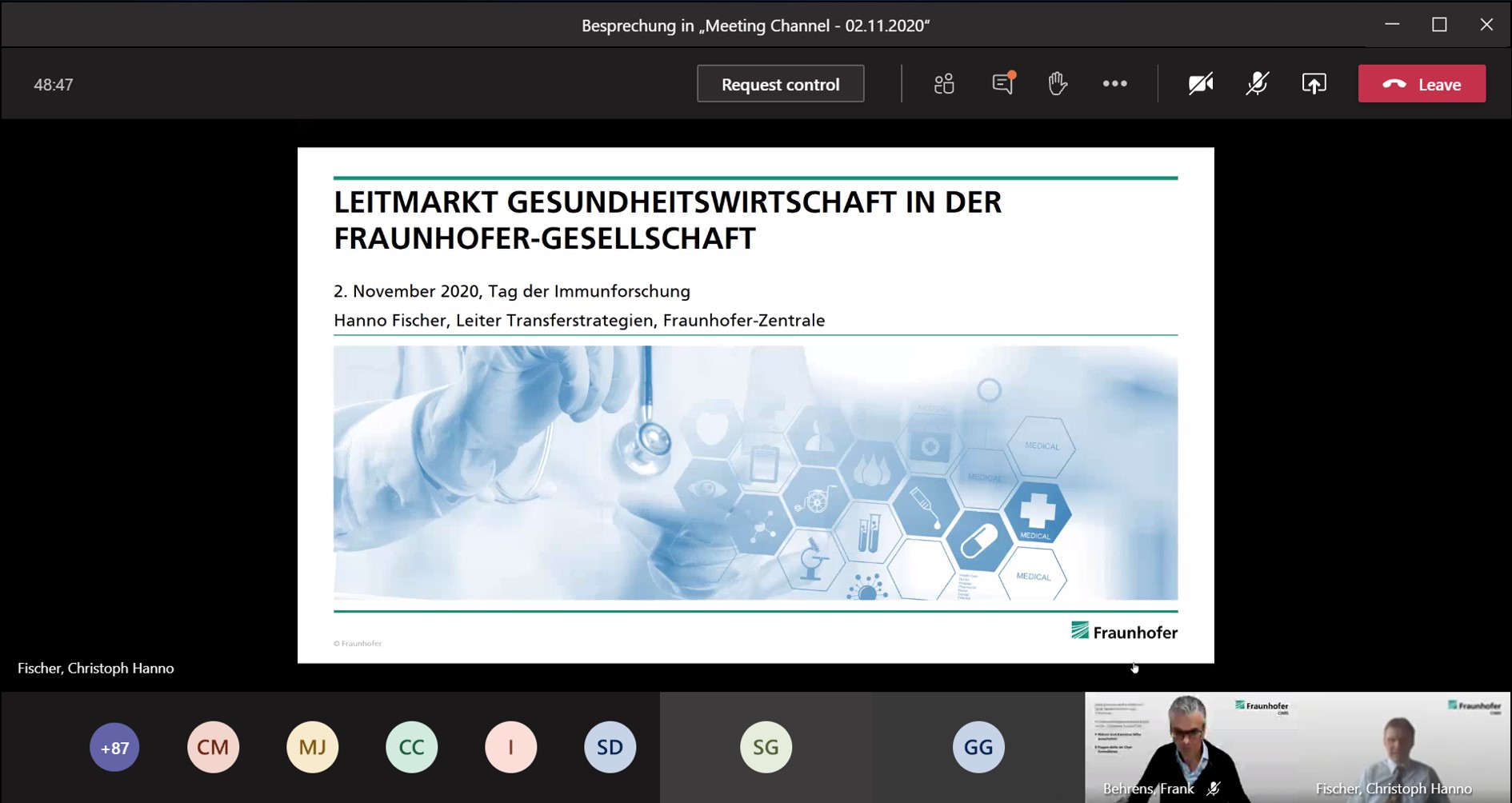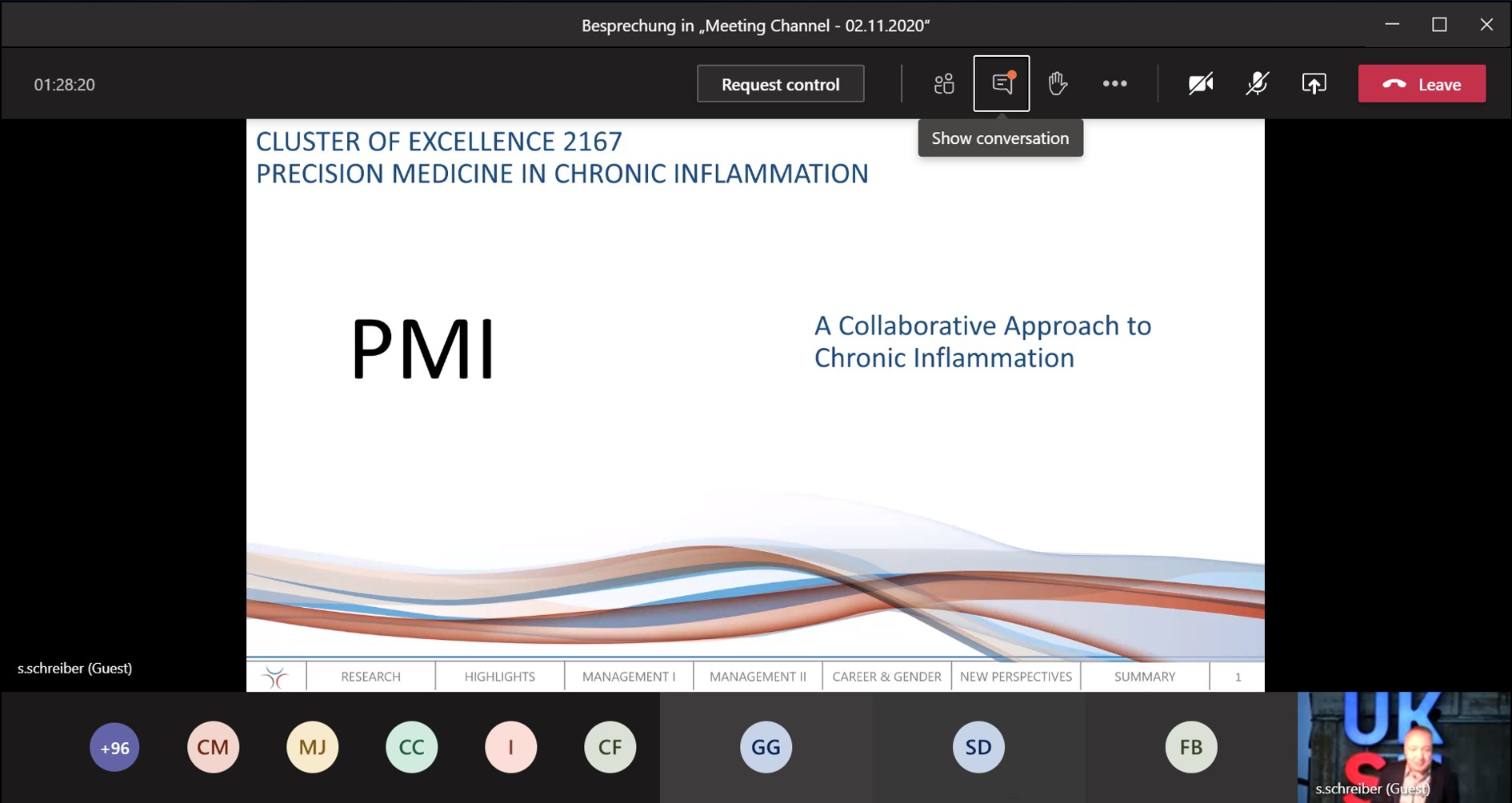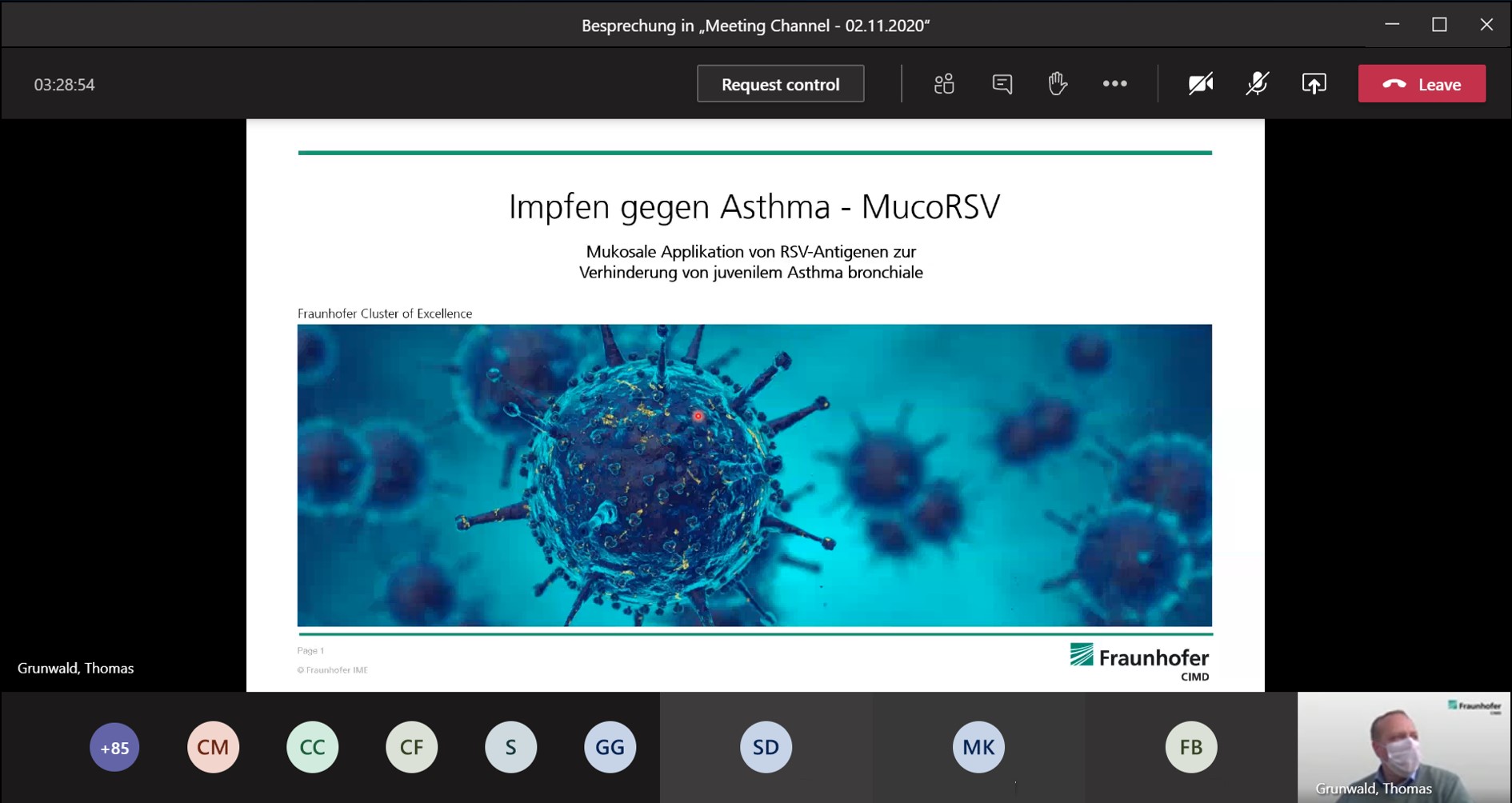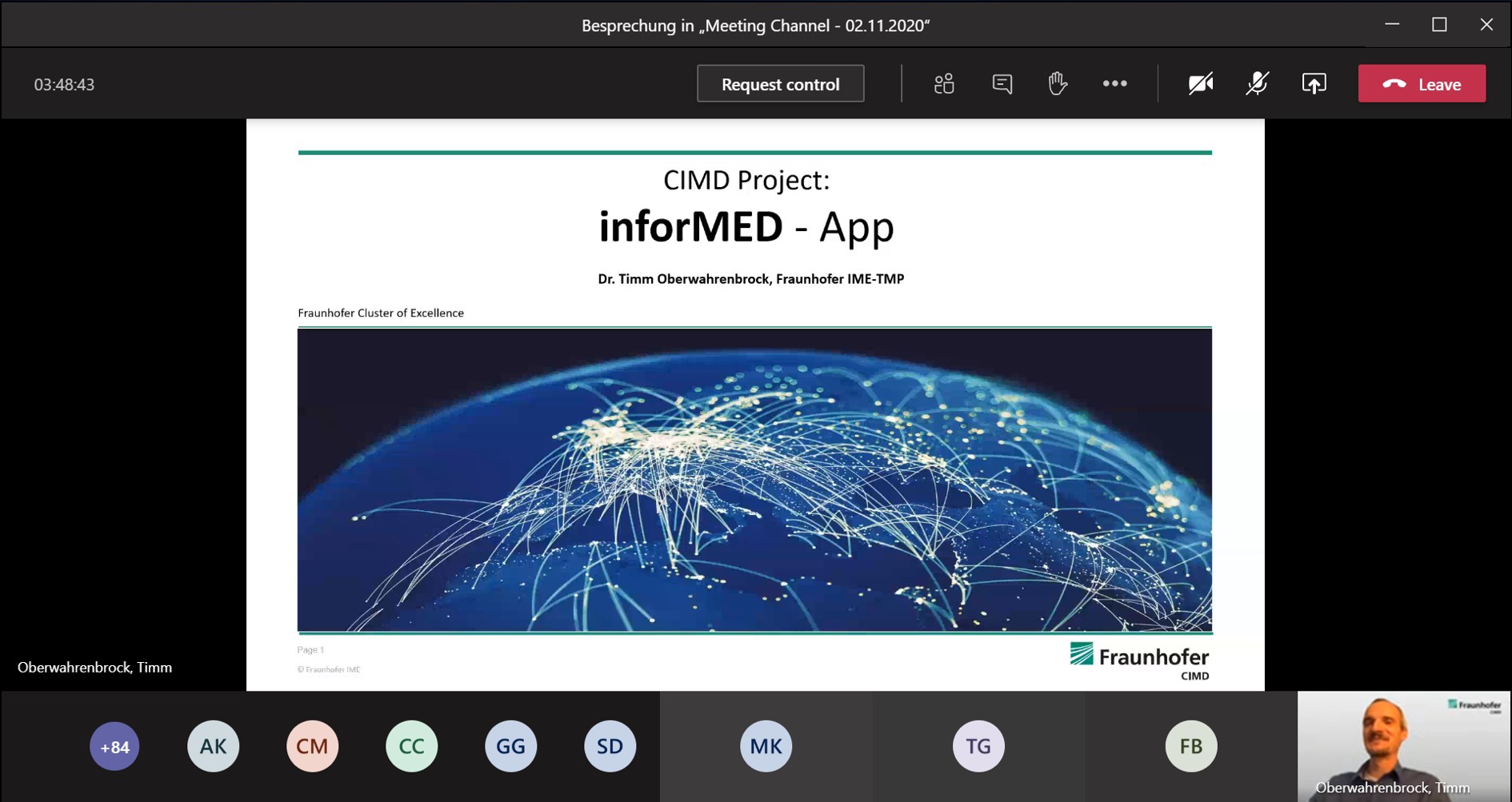Virtual Day of Immune Research 2020
On November 2, 2020, the second Day of Immune Research of the Fraunhofer Cluster of Excellence Immune-Mediated Diseases CIMD took place. Due to the COVID-19 situation, the second Day of Immune Research, which had originally been scheduled for June 2020 in Frankfurt, had to be postponed and conducted virtually. The event was conducted with Microsoft teams. In the team "Day of Immune Research 2020", which was set up especially for this purpose, and the associated meeting channel, 120 participants attended the event. The field of participants consisted of employees from 26 Fraunhofer Institutes as well as participants from universities, university hospitals and industry.
The event was opened by Prof. Dr. Dr. Gerd Geisslinger, head of Fraunhofer IME and spokesman of Fraunhofer CIMD, with an overview of the cluster's goals, tasks and work. In the first part of the event, Hanno Fischer, Head of Transfer Strategies at the Fraunhofer headquarters, took the floor. He gave an exciting insight into various Fraunhofer structures for research and transfer, including the lead-market-oriented alliance healthcare sector. Prof. Stefan Schreiber, Director of the Clinic for Internal Medicine I at the University Hospital Schleswig-Holstein, was invited as external speaker for the event. He gave an impressive overview of his work and of the topic "Translational immune research in chronic inflammatory diseases". PD Dr. Behrens, head of the clinical research department at the branch Tranlsational Medicine and Pharmacology TMP of Fraunhofer IME and science coordinator of Fraunhofer CIMD, led through the program of the second Day of Immune Research.
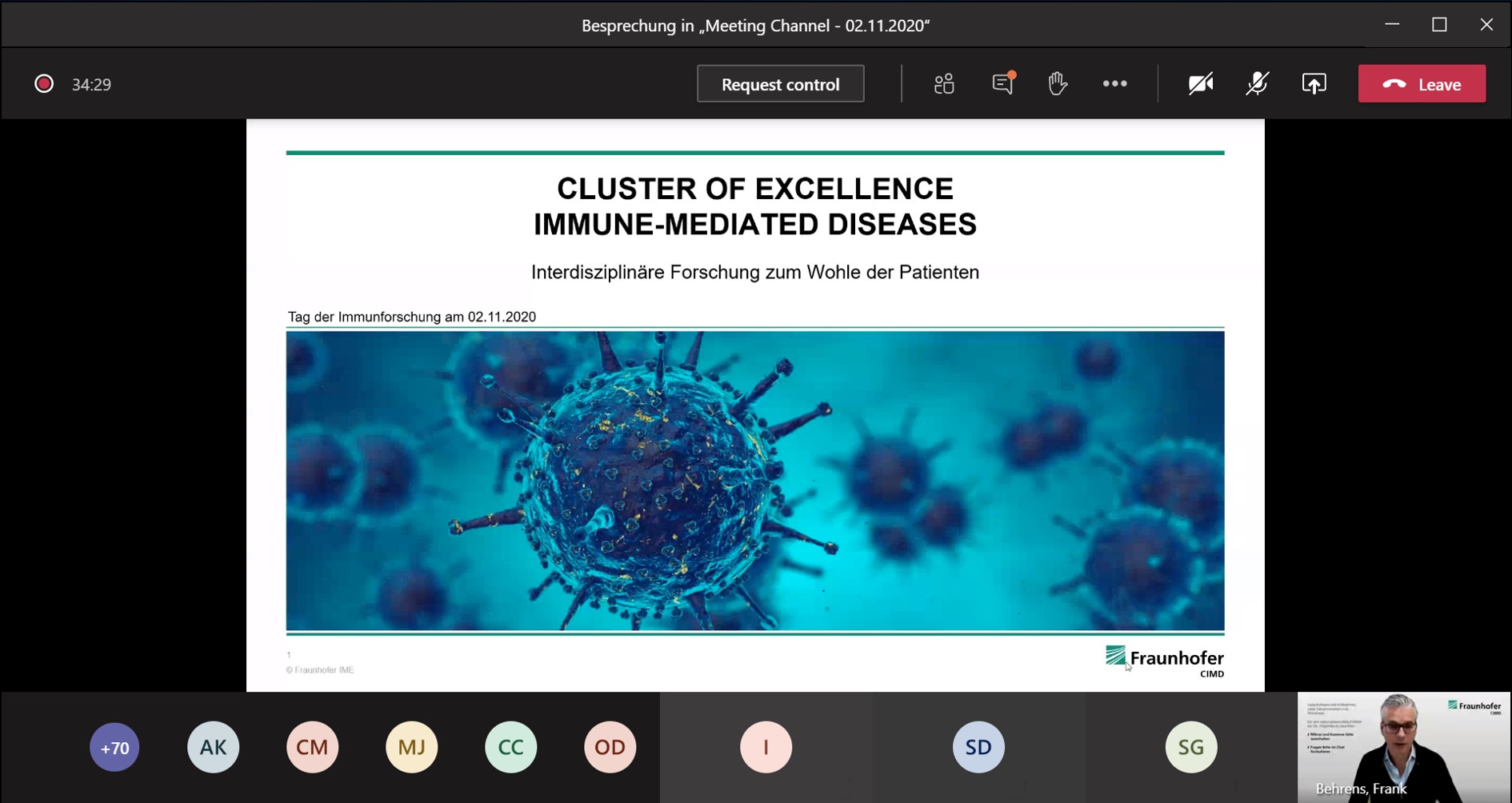
From the ranks of the Fraunhofer experts, we were also able to welcome Prof. Dr. Oliver Ambacher, head of Fraunhofer IAF, and Prof. Dr. Stefan Wrobel, head of Fraunhofer IAIS, as speakers in the course of the morning. Prof. Ambacher gave an insight into his work on applied quantum sensor technology and pointed out some opportunities for medicine. Prof. Wrobel explained the potentials and challenges of AI and machine learning for medicine.
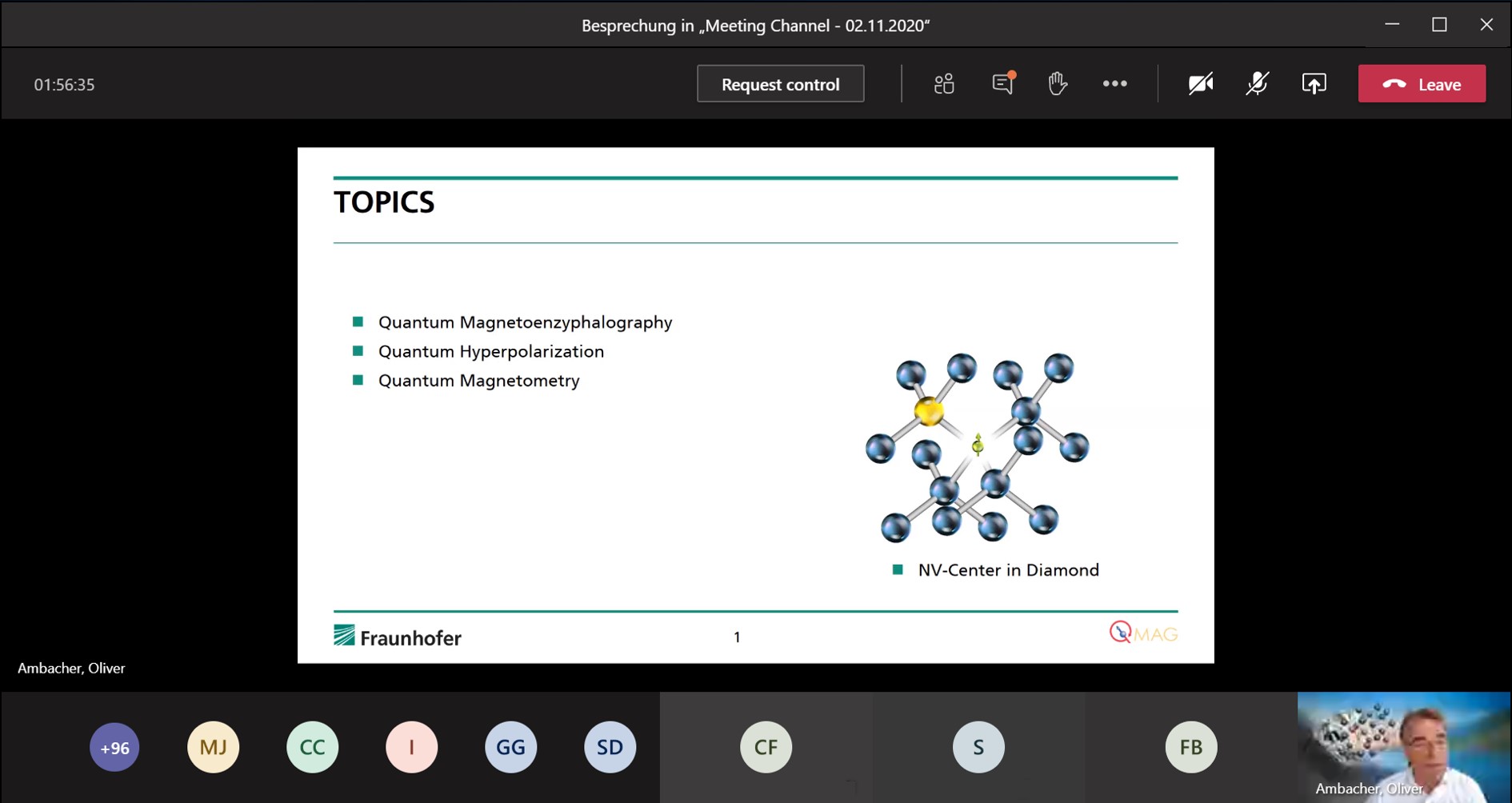
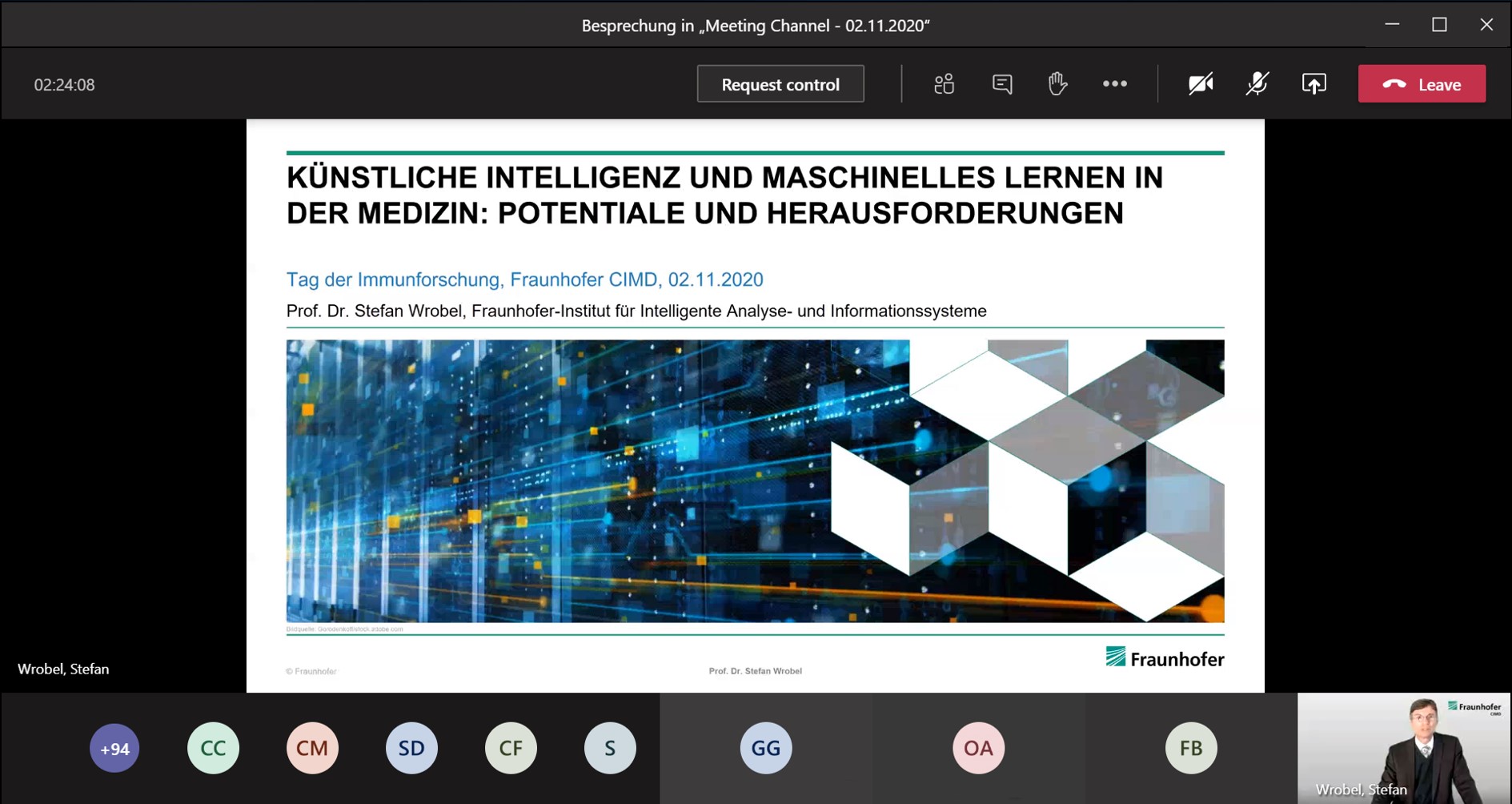
After a short break, the program continued with presentations on selected research projects of Fraunhofer CIMD. This gave the participants an insight into the research work of the cluster.
Fraunhofer CIMD is dedicated to translational research. It thus transfers basic research into application. Fraunhofer CIMD works in the four major areas of health research - Drugs, Diagnostics, Devices and Data, the 4D. In principle, these four focus areas are represented by the four professional groups - doctors, natural scientists, engineers and computer scientists. This interdisciplinary cooperation was repeatedly expressed in the projects presented, making it clear that interdisciplinary cooperation is essential for effective translation.
Dr. Köhm presented the work and results within her project to develop a biomarker profile for the early diagnosis of subclinical arthritis. Dr. Grunwald then presented his project on the development of a mucosal application of RSV antigens for the prevention of juvenile bronchial asthma and showed some promising results. Dr. Oberwahrenbrock told about the results so far and further steps in his project in which he is developing an app as a treatment support for immune diseases. Finally, Dr. Rosencrantz gave an impressive presentation on how aptamers can be used to detect glycosylation changes, which is the goal of her Fraunhofer CIMD project.
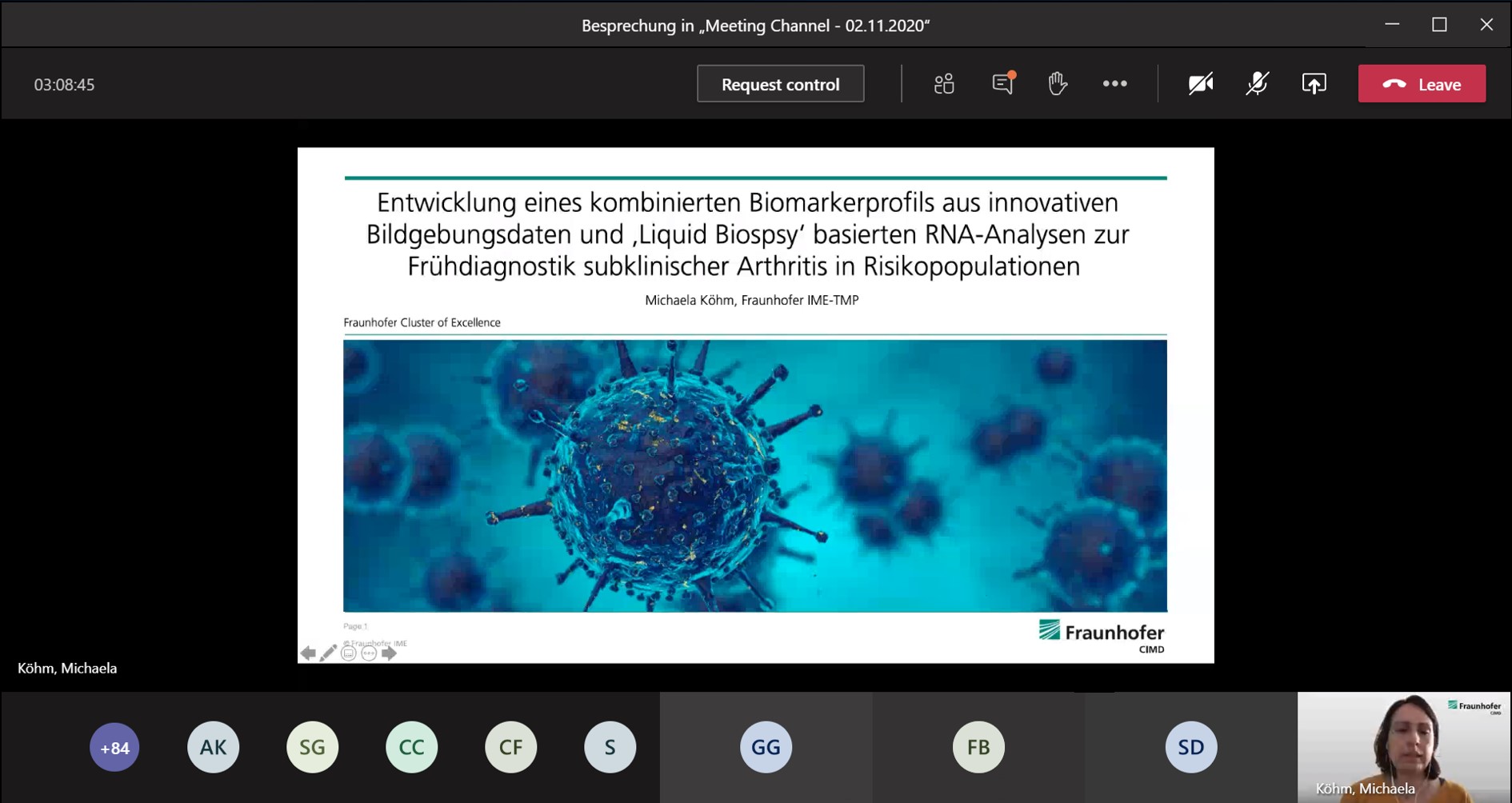
The second virtual Day of Immune Research was, despite the required change to the online format, a successful continuation of networking, collaboration and cooperation opportunities along the 4D within the whole Fraunhofer-Gesellschaft. Nevertheless, we hope to welcome our participants again personally next year.
 Fraunhofer Cluster of Excellence Immune-Mediated Diseases
Fraunhofer Cluster of Excellence Immune-Mediated Diseases